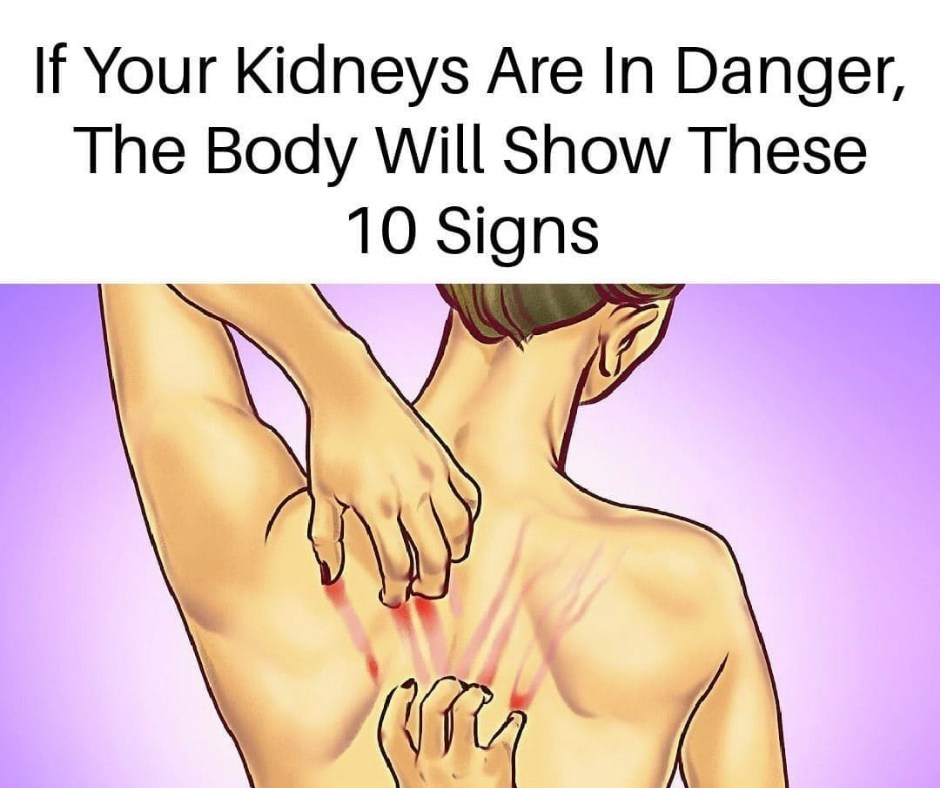Your kidneys may be small, but their importance to your overall health is enormous. Shaped like beans and located just below your ribcage on either side of your spine, these vital organs are responsible for filtering waste products and excess fluids from your blood. They also regulate essential electrolytes like sodium, potassium, and calcium, help manage blood pressure, and even aid in red blood cell production. On a typical day, healthy kidneys filter about 120 to 150 quarts of blood, producing roughly 1 to 2 quarts of urine. When your kidneys encounter trouble, your body often sends out warning signs—it’s essential to recognize them early.

Understanding Kidney Disease
Kidney disease, also known as renal disease, occurs when the kidneys become damaged and lose their ability to function properly. This damage can stem from a variety of causes, including high blood pressure, diabetes, infections, autoimmune disorders, or even genetic conditions. Without timely treatment, kidney disease can progress to kidney failure, a life-threatening condition that may require dialysis or a transplant. Early detection is crucial to managing the disease and preventing further damage.
10 Signs Your Kidneys May Be in Trouble
If your kidneys are in danger, your body often provides clear signals. Here are ten warning signs to watch for:
-
- Changes in Urination
A noticeable change in urination is often one of the first indicators of kidney issues. You might find yourself urinating more frequently, especially at night, or less often than usual. Other changes include darker or foamy urine, which can signal underlying kidney problems. - Fatigue and Weakness
When your kidneys don’t function properly, they may fail to produce enough erythropoietin, a hormone responsible for red blood cell production. This can lead to anemia, resulting in persistent fatigue, weakness, and trouble concentrating.
- Changes in Urination
- Swelling (Edema)
Damaged kidneys struggle to remove excess fluids, causing swelling in areas like the legs, hands, face, and abdomen. This condition, known as edema, is a common symptom of kidney dysfunction. - Persistent Back Pain
Pain just below the ribcage, near the kidneys, can indicate kidney disease. The pain might be dull or sharp and may come with tenderness. Untreated urinary tract infections that spread to the kidneys can also cause this discomfort. - Unexplained Weight Loss or Loss of Appetite
Waste buildup in the body due to impaired kidney function can suppress appetite and lead to sudden, unexplained weight loss. - Nausea and Vomiting
Accumulated toxins in the bloodstream from kidney issues can cause nausea and vomiting. This symptom is particularly noticeable in the mornings or after meals. - Trouble Sleeping
Many individuals with kidney disease experience difficulty sleeping. Muscle cramps, restless leg syndrome, or frequent urination at night can disrupt sleep patterns, leaving you feeling tired and irritable. - Metallic Taste in the Mouth
A persistent metallic taste or changes in the way food tastes can be due to waste accumulation in the blood. This is a sign of advancing kidney issues and shouldn’t be ignored. - Muscle Cramps and Twitching
Electrolyte imbalances, such as low calcium or potassium levels, often accompany kidney problems and can cause muscle cramps, twitching, or spasms. - Itchy Skin
Excess toxins in the blood from malfunctioning kidneys can cause persistent itching, often across the entire body. This itching can be both irritating and difficult to relieve.
How to Protect Your Kidneys
If you notice any of these signs, it’s vital to consult a healthcare professional promptly. Early detection and timely intervention can slow the progression of kidney disease and significantly improve quality of life. Here are some tips to keep your kidneys healthy:
- Maintain a Balanced Diet: Eat plenty of fruits, vegetables, whole grains, and lean proteins. Limit processed foods and excessive salt.
- Exercise Regularly: Physical activity helps maintain a healthy weight, lower blood pressure, and reduce the risk of diabetes, all of which contribute to kidney health.
- Stay Hydrated: Drinking enough water helps flush toxins from your kidneys and keeps them functioning efficiently.
- Avoid Smoking and Limit Alcohol: Smoking damages blood vessels, while excessive alcohol consumption can raise blood pressure, both of which harm kidney health.
- Use Medications Responsibly: Overusing certain over-the-counter pain relievers or prescription drugs can stress your kidneys. Always follow your doctor’s instructions.
Listening to Your Body
Kidney disease is a serious condition, but the body often provides clear warning signs when something is wrong. By paying attention to these ten symptoms and taking action, you can address potential kidney problems early. Regular check-ups are particularly important if you have risk factors like diabetes, high blood pressure, or a family history of kidney disease.
Your kidneys are essential to your overall health and well-being. Taking proactive steps to care for them now can make a significant difference in your future. Don’t wait until it’s too late—listen to your body, prioritize kidney health, and enjoy a healthier, more vibrant life.





